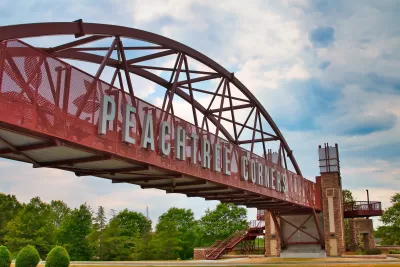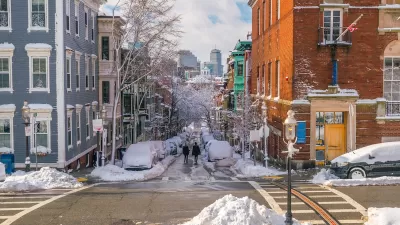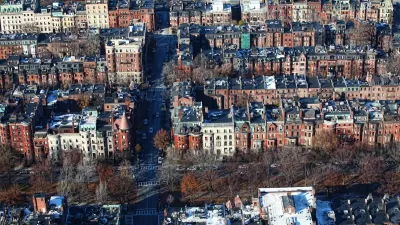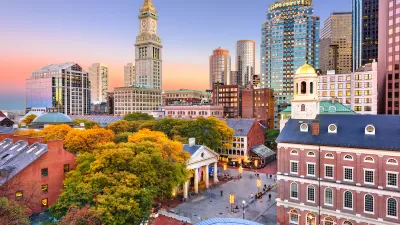Racial segregation in housing is growing and shifting as affluent enclaves form new incorporated cities and options for affordable housing in cities become more limited.

The geography of racial segregation is changing in U.S. cities, according to research by Luisa Godinez-Puig and Sharon Cornelissen for the Joint Center for Housing Studies of Harvard University. “As gentrification and housing unaffordability price lower-income residents out of major cities, we see new racial inequalities emerging on the metropolitan fringe,” they write. Two articles expand on their findings in Atlanta and Boston.
In Atlanta, the creation of new cities, which often occurs in affluent white communities, “can have large impacts on the unincorporated areas they leave behind, which are often communities of color. Indeed, by detaching themselves from county governance, new cities take resources away from the common pool of unincorporated areas and can significantly hurt the economic development of these communities.” Godinez-Puig notes that some predominantly Black communities have also incorporated, in part as a response to other new cities, but that the effects of their incorporation is unclear.
In Boston, the rapidly rising costs of housing are pushing Black families farther out of the city center as “unequal housing choices shape new locations of segregation across metropolitan Boston.” In 2020, the city was ranked 11th most segregated of the top 50 U.S. metros, resulting in disparities in economic and educational opportunities and access to healthcare and jobs. The article asserts that state governments can redress these disparities through preemption laws that promote affordable housing and eliminate exclusionary zoning and a stronger commitment to Affirmatively Furthering Fair Housing and enforcement of the Fair Housing Act.
FULL STORY: The Incorporation of New Cities Has Increased Racial Segregation in Metro Atlanta

Planetizen Federal Action Tracker
A weekly monitor of how Trump’s orders and actions are impacting planners and planning in America.

Congressman Proposes Bill to Rename DC Metro “Trump Train”
The Make Autorail Great Again Act would withhold federal funding to the system until the Washington Metropolitan Area Transit Authority (WMATA), rebrands as the Washington Metropolitan Authority for Greater Access (WMAGA).

The Simple Legislative Tool Transforming Vacant Downtowns
In California, Michigan and Georgia, an easy win is bringing dollars — and delight — back to city centers.

The States Losing Rural Delivery Rooms at an Alarming Pace
In some states, as few as 9% of rural hospitals still deliver babies. As a result, rising pre-term births, no adequate pre-term care and "harrowing" close calls are a growing reality.

The Small South Asian Republic Going all in on EVs
Thanks to one simple policy change less than five years ago, 65% of new cars in this Himalayan country are now electric.

DC Backpedals on Bike Lane Protection, Swaps Barriers for Paint
Citing aesthetic concerns, the city is removing the concrete barriers and flexposts that once separated Arizona Avenue cyclists from motor vehicles.
Urban Design for Planners 1: Software Tools
This six-course series explores essential urban design concepts using open source software and equips planners with the tools they need to participate fully in the urban design process.
Planning for Universal Design
Learn the tools for implementing Universal Design in planning regulations.
Smith Gee Studio
City of Charlotte
City of Camden Redevelopment Agency
City of Astoria
Transportation Research & Education Center (TREC) at Portland State University
US High Speed Rail Association
City of Camden Redevelopment Agency
Municipality of Princeton (NJ)





























